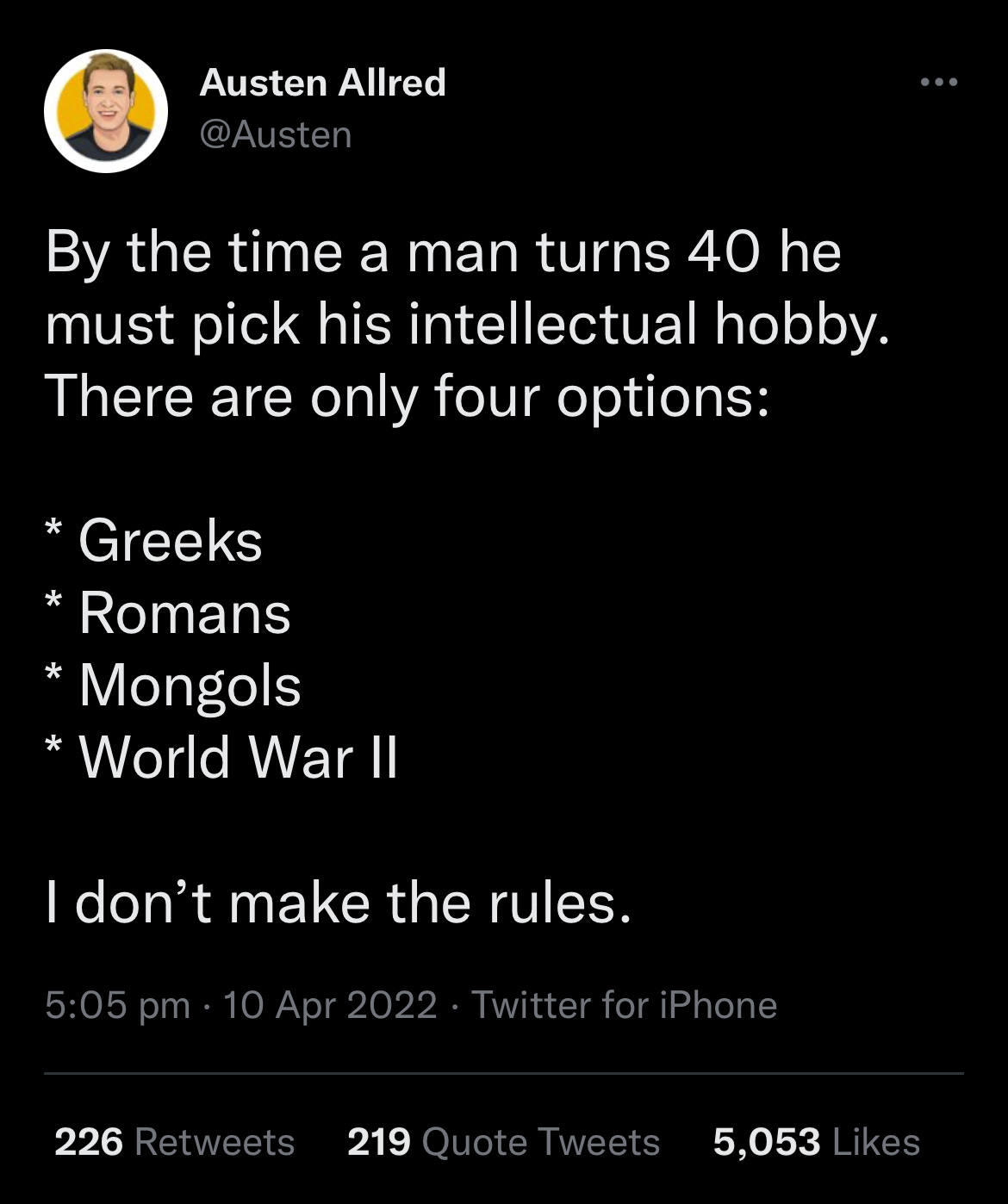Happy Friday!
After the previous weekly email not sending at all, last week’s sent twice. No idea why, and it seems to have happened to a lot of Substacks. Nonetheless, my apologies.
Helen
I Quit My Job To Write A Book About Late Bloomers (Substack)
A dozen years ago or more, I saw an article in the paper about a High Court judge who was retiring to start a PhD in theology at Oxford. I can never find that article in newspaper archives, but it stayed with me. I can see it in my mind. Several years later, I read James-Lees Milne’s Diaries; this passage fixed itself in my memory.
I am a late developer more than most men of my generation and in some respects still quite adolescent, an opsimath indeed.
Opsimath is a mesmerising word — and an even more captivating idea. Then, listening to Tyler Cowen’s interview with Tim Ferris, a phrase struck me: “People who have not yet succeeded but maybe they will.”
I was reminded of Leonard Bernstein's father who didn't want his son to study music and who later said, “How did I know that he would become Leonard Bernstein?” Immediately, also, I thought of the genius Penelope Fitzgerald, who has a claim to be the most underrated novelist of the twentieth century. She started writing fiction aged sixty.
Henry Oliver on his new book, which sounds brilliant. I recently spoke to Henry for his podcast, in which he very politely implied I should stop making cheap gags about vaginas and embrace being a proper writer, like a biographer or something. NEVER, HENRY, NEVER.

Nip Nops and Le Dollar Bean: The Algorithm-Foiling Language of TikTok (Washington Post)
Algospeak refers to code words or turns of phrase users have adopted in an effort to create a brand-safe lexicon that will avoid getting their posts removed or down-ranked by content moderation systems. For instance, in many online videos, it’s common to say “unalive” rather than “dead,” “SA” instead of “sexual assault,” or “spicy eggplant” instead of “vibrator.”
. . . When the pandemic broke out, people on TikTok and other apps began referring to it as the “Backstreet Boys reunion tour” or calling it the “panini” or “panda express” as platforms down-ranked videos mentioning the pandemic by name in an effort to combat misinformation. . . Sex workers, who have long been censored by moderation systems, refer to themselves on TikTok as “accountants” and use the corn emoji as a substitute for the word “porn.”
Taylor Lorenz on how social media users are avoiding bans and suspensions by creating new words.
This phenomenon is particularly noticeable on TikTok, where getting your video on the For You Page (the algorithmically generated main feed shown to all users) is vital for growth and monetisation. That dynamic also makes TikTok a much more collective experience than Twitter, because different communities seem to collide more, and you get more random exposure to the memes (particularly the latest duet trends and voiceovers) that sweep across the site.
For example: on any video of a blackhead being squeezed—oh come on, like that’s the worst thing you’ve seen on the internet—it is traditional to post a comment saying something like “forbidden nacho cheese”. On videos of orcas/lions/other predators looking cute, the traditional response is “if dangerous, why friend shaped”. There is also a lot of usage of the phrase “good soup”, which I’m not clear on, but would make a great support act for Wet Leg.
This is why I love TikTok: it’s still a creative, community space. I regret to inform you that furious gender takes are creeping in to my FYP, and I suspect that the culture warriors and self-promoters are moving in, and the fun days of TikTok (or rather my fun days on TikTok) are therefore coming to an end. Can we not have one place on the internet where I can watch a man clean people’s ears with a tiny hoover without constantly running into people shouting at each other? 1
Quick Links
Jonathan Haidt makes the case—fairly compellingly, though I have questions—that social media and American democracy are a poisonous combination (The Atlantic). One of my questions would be: why does America seem to be uniquely badly affected by virality and polarisation?
Malcolm Gladwell suggests that the Lia Thomas case and the spate of vicious anti-trans bills in places like Texas should not be lumped together by activists as a single issue (Bulletin).
“Being a professional writer or journalist means that there’s this big HR file on you that can either save or damn your career, only rather than being in a corporations’s cloud partition somewhere it sort of floats around in the atmosphere. You know it’s there, and you know it matters, but you can never know exactly what it says or who wrote it.” Freddie deBoer nails something about this dumb, wonderful career I’ve chosen that I’ve never seen put into words before (Substack).
I had not fully internalised that this is how they filmed the kissing scenes in Peep Show and frankly I wish I hadn’t thought about it.
‘Now, it is absolutely true that real life does not always give you neat “Rosebud” explanations; real people are often simply jumbles of unresolved contradictions. But that’s one reason we have drama: to make emotional, if not literal, sense of this kind of figure. (Hence Orson Welles reimagined William Randolph Hearst as Charles Foster Kane.)
When people say “Truth is stranger than fiction,” what they mean is that it is more inexplicable. It’s random; it’s poorly foreshadowed; every character other than ourselves is a black box.’ Are there too many dramas based on “true life” right now? (New York Times)
“As months passed, the stories continued to pile up, a mix of the sordid, sad, and appalling. An elderly man in his seventies who had uploaded more than 80 child abuse videos. A man in his early twenties with traumatic brain damage, whose medication had heightened his sexual appetites and reduced his impulse control, and who was deemed to have the same level of cognitive development as the preteens whose abuse he’d watched.” Gripping, awful story about how a bunch of financial investigators used —supposedly untraceable—Bitcoin to take down a dark web site hosting child abuse videos (Wired). One of my friends posed a terrifying question after reading this: how many of these men would have been into this stuff before the internet made it easily available?
Postbag: I’m not saying that Bluestocking readers are nerds, but the response to my recent Atlantic piece on Europe’s ex-royals included one correspondent emailing me to note he had once interviewed Crown Prince Alexander of Serbia, and another to inform me of the existence of a joke royalist party in Estonia which did unexpectedly well when it contested an election. One of its policies was an “eating strike,” ie the opposite of a hunger strike.
A third man, who shall remain nameless, adds: “My top random Bonepartist fact: none of Napoleon’s direct relatives hold any thrones but the Swedish, Danish, Norwegian, Belgian and Luxembourg thrones are all held by descendants of Josephine.”
He also sent me this:
See you next time!
The only celebrity I still want to meet is Conor from Durham Audiology Associates.





Misread virality as virility. Maybe it was intentional; it certainly works.
Brilliant read, as always!